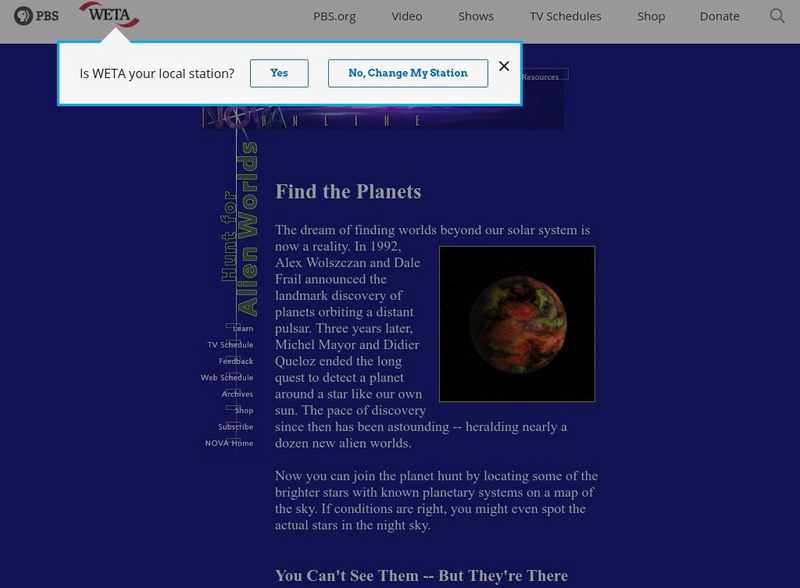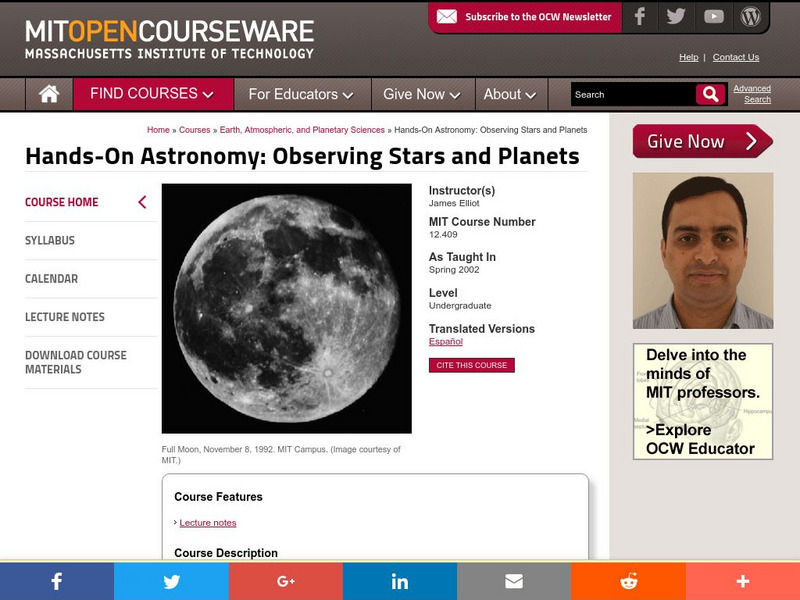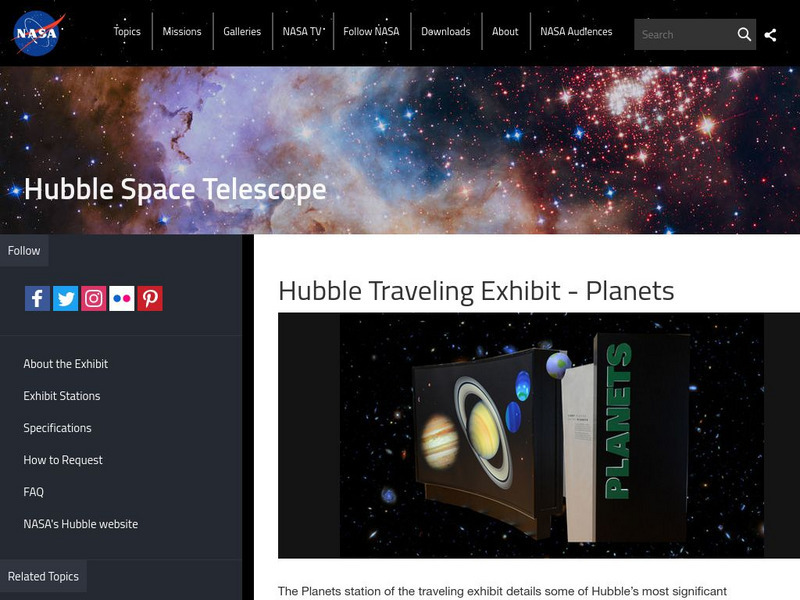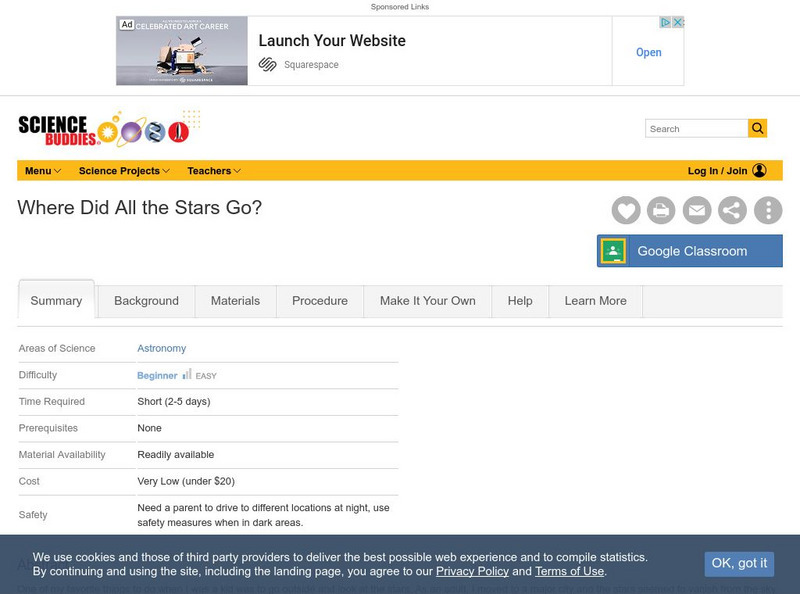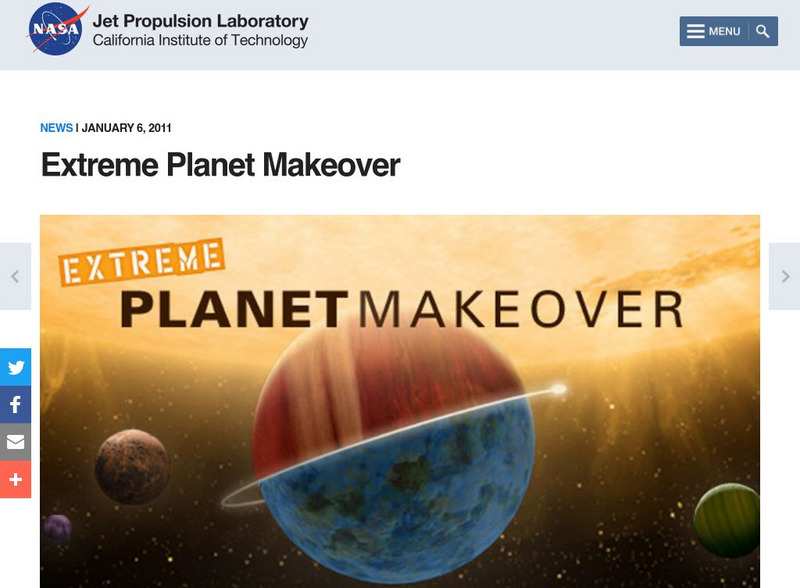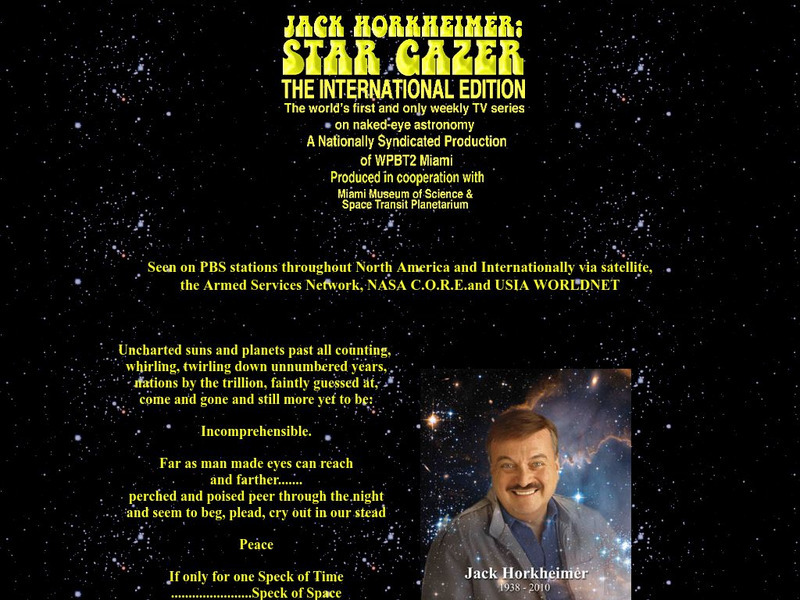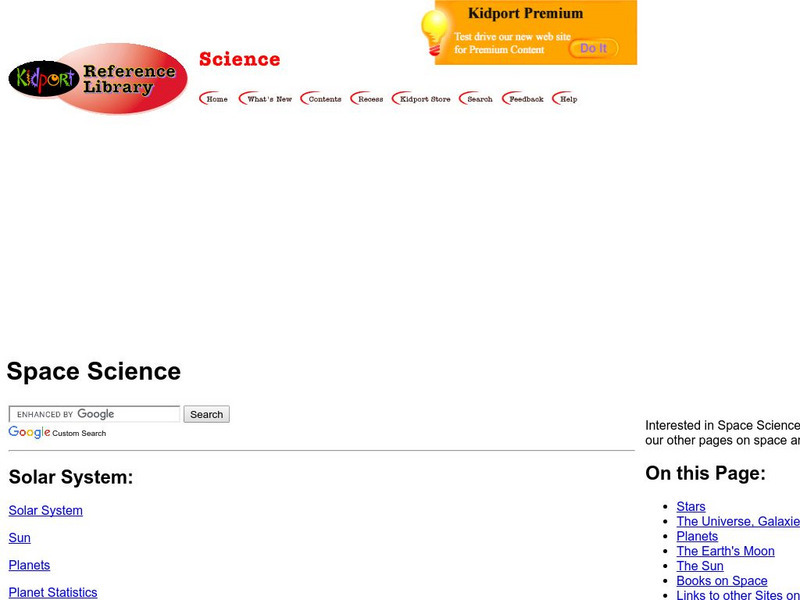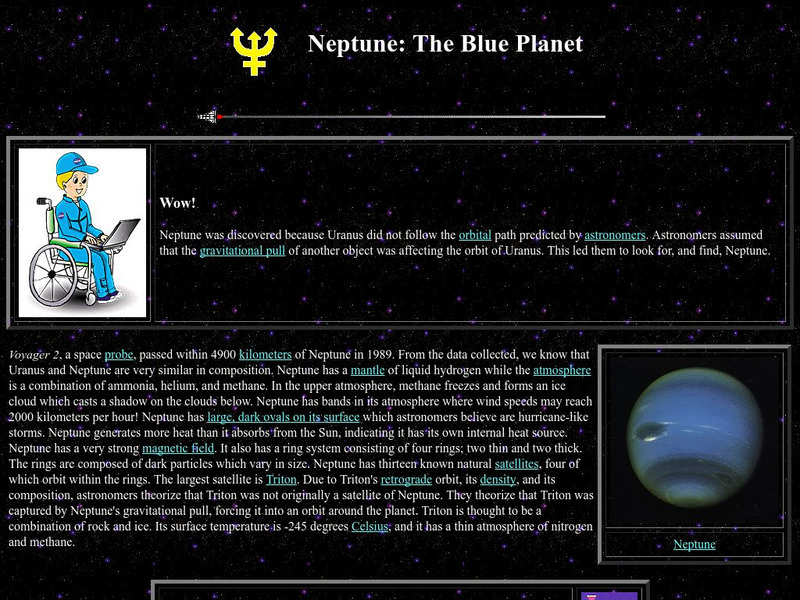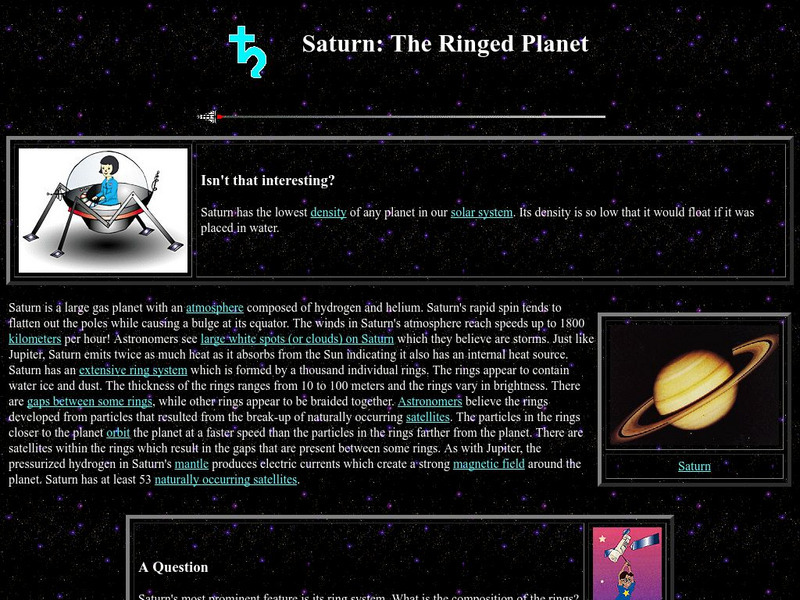US Environmental Protection Agency
Epa: Planet Protectors Club for Kids
This site has activities, games and stories starring the Planet Protector's Club. Find out how kids can help our environment. (Several activities include a Spanish version.)
Nine Planets
The Eight Planets: The Sun Solar Wind
This Eight Planets site briefly describes solar wind, a low density stream of charged particles emitted by the Sun. It also provides the basics on the sun's composition and additional sun links.
PBS
Pbs: Find the Planets
Find out how astronomers locate new planets by observing the traits of the stars they orbit. Get some tips at locating stars with the help of star maps.
Massachusetts Institute of Technology
Mit: Open Course Ware: Hands on Astronomy: Observing Stars and Planets
A university-level course in basic observational procedures in astronomy. Covers how to use a telescope, and includes lecture notes.
Space Telescope Science Institute
Nasa: Hubble Traveling Exhibit: Planets
At this site from HubbleSite you can learn everything you wanted to know about planets like what is the weather on Mars, what is the black eye on Jupiter? Site also provides links to information on the telescope, the rest of the planets,...
Science Buddies
Science Buddies: How Big Are the Planets in Our Solar System?
This activity explores the relative size of the eight planets that circle around the Sun.
Smithsonian Institution
National Air and Space Museum: Exploring the Planets: Ancient Times & the Greeks
In ancient times only five planets were known: Mercury, Venus, Mars, Jupiter, and Saturn. Learn about Greek astronomer Ptolemy's theory for the solar system that was to survive for fourteen centuries.
Science Buddies
Science Buddies: Where Did All the Stars Go?
If you live in a big city or urban area it is hard to see many stars at night. In most urban areas only the most brilliant stars, planets and the moon can be seen. This is because of something called light pollution which is the...
Science Buddies
Science Buddies: The Moon and the Stars
When you are in the city, only a few of the brightest stars are visible. But when you are in the country, you can see many more stars than you can count. Sometimes you can even see the bright belt of our galaxy, the Milky Way. In this...
NASA
Nasa: Planet Quest: Extreme Planet Makeover
Activity in which students create a planet based on distance from a star, age, size, and star type. The created planet is evaluated to determine if it can support life.
NASA
Nasa Star Child: Saturn, the Ringed Planet (Level 1)
A good simple introduction to planet Saturn for young students. Audio content available. Vocabulary words linked to glossary of terms. Printable version available.
NASA
Nasa Star Child: Planet Hop
Figure out your age and your weight on all the planets in the solar system using the formulas given here. Then type them into the correct place, and let the computer check to see if you are correct.
Other
Jack Horkheimer: Star Gazer
This is a site on astronomy in general. If you are into astrophotography, you can find out what is happening in the heavens! Jack Horkheimer is also seen on PBS. You can access the 5 or 1 minute shows on this site.
Kidport
Kidport: Space Science
This complete resource will help students to improve their understand of space exploration. Includes images of the universe, galaxies, stars and planets.
Other
University of Leicester: The Solar System
Resource explores the solar system, with an in depth discussion of each of the planets and their properties.
Other
Montana State University: How Much Would You Weigh on Distant Planets?
This resource contains a lesson plan in which learners study the effects of gravity on the planets of the Solar System. They will view movies from the lunar Apollo missions, calculate their own weight on other planets, and propose what...
Other
Energy Star: You Can Be an Energy Star [Pdf]
The "Who's Guide to Saving Our Planet" helps students protect the environment through superior energy efficiency.
TED Talks
Ted: Ted Ed: Nasa & Trappist 1: A Treasure Trove of Planets Found
Seven Earth-sized planets have been observed by NASA's Spitzer Space Telescope around a tiny, nearby, ultra-cool dwarf star called TRAPPIST-1. Three of these planets are firmly in the habitable zone. In this video, NASA Scientists...
NASA
Nasa Star Child: Mars, the Red Planet (Level 2)
A general introduction to Mars. Includes a glossary of terms and two images of Mars. Many interspersed links to more graphics and more detailed information about the planet Mars. Also includes a printable version and links to other...
NASA
Nasa Star Child: The Blue Planet (Level 2)
A good general introduction to planet Neptune for students. Has many links to more detailed information about the planet throughout the page, as well as special links for interesting facts. Also features a printable version of the page.
NASA
Nasa Star Child: Jupiter the Largest Planet
Here at this site from NASA you can learn about the planet Jupiter! Read, or listen to, what makes Jupiter so special in our solar system.
NASA
Nasa Star Child: Saturn, the Ringed Planet (Level 2)
An introductory site with information about planet Saturn, with a good glossary, a brief quiz, and links for more information. Printable version also available.
Other
Energy Star: Un Mundo Bellow Comienza Contigo [Pdf]
The Government sponsored resource helps individuals protect the environment through superior energy efficiency. The activities teach students about the environment and what they can do to save the planet.
Other
Energy Star: A Beautiful World Starts With You [Pdf]
The Government sponsored resource helps individuals protect the environment through superior energy efficiency. The activities teach students about the environment and what they can do to save the planet.




